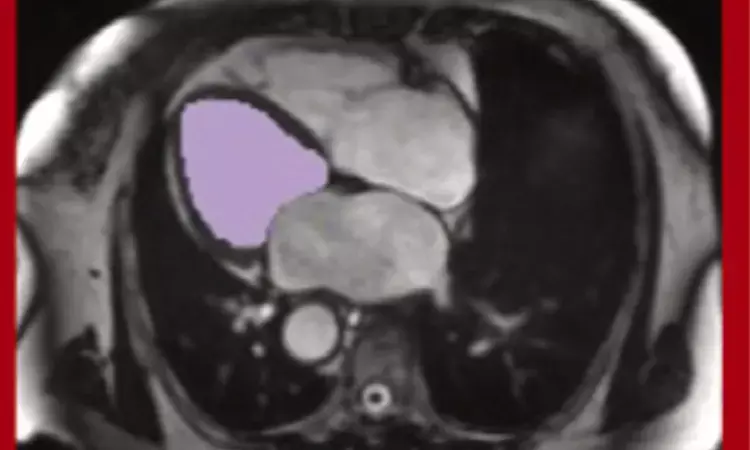- Home
- Medical news & Guidelines
- Anesthesiology
- Cardiology and CTVS
- Critical Care
- Dentistry
- Dermatology
- Diabetes and Endocrinology
- ENT
- Gastroenterology
- Medicine
- Nephrology
- Neurology
- Obstretics-Gynaecology
- Oncology
- Ophthalmology
- Orthopaedics
- Pediatrics-Neonatology
- Psychiatry
- Pulmonology
- Radiology
- Surgery
- Urology
- Laboratory Medicine
- Diet
- Nursing
- Paramedical
- Physiotherapy
- Health news
- Fact Check
- Bone Health Fact Check
- Brain Health Fact Check
- Cancer Related Fact Check
- Child Care Fact Check
- Dental and oral health fact check
- Diabetes and metabolic health fact check
- Diet and Nutrition Fact Check
- Eye and ENT Care Fact Check
- Fitness fact check
- Gut health fact check
- Heart health fact check
- Kidney health fact check
- Medical education fact check
- Men's health fact check
- Respiratory fact check
- Skin and hair care fact check
- Vaccine and Immunization fact check
- Women's health fact check
- AYUSH
- State News
- Andaman and Nicobar Islands
- Andhra Pradesh
- Arunachal Pradesh
- Assam
- Bihar
- Chandigarh
- Chattisgarh
- Dadra and Nagar Haveli
- Daman and Diu
- Delhi
- Goa
- Gujarat
- Haryana
- Himachal Pradesh
- Jammu & Kashmir
- Jharkhand
- Karnataka
- Kerala
- Ladakh
- Lakshadweep
- Madhya Pradesh
- Maharashtra
- Manipur
- Meghalaya
- Mizoram
- Nagaland
- Odisha
- Puducherry
- Punjab
- Rajasthan
- Sikkim
- Tamil Nadu
- Telangana
- Tripura
- Uttar Pradesh
- Uttrakhand
- West Bengal
- Medical Education
- Industry
Spherical hearts identified through AI analysis of cardiac MRI may predict AF, cardiomyopathy

USA: A recent study has found that healthy adults with spherical hearts are 24% more likely to develop atrial fibrillation and 31% more likely to develop atrial fibrillation. The study was published online in the Cell Press Med on March 29, 2023.
An artificial intelligence (AI) algorithm revealed that heart roundness seen on cardiac magnetic resonance imaging (MRI) may predict heart failure and atrial fibrillation risk. Researchers identified four loci linked with sphericity at genome-wide significance.
Imaging plays a critical role in heart disease diagnosis and management. Modalities such as MRI and ultrasound allow clinicians to visualize manifestations of heart disease, including a reduction in the heart muscle's pumping strength or enlargement of the heart chambers. Against this background, Milos Vukadinovic, University of California Los Angeles, Los Angeles, CA, USA, and colleagues hypothesized that shape may carry additional information on heart health beyond function and size.
They used artificial intelligence to evaluate >30,000 heart MRIs and revealed that even when function and size are normal, the heart's roundness or sphericity predicts risk for heart conditions. Also, heart roundness is affected by genetic influences.
"Considering heart shape may help improve our ability to identify people at risk for heart disease development," the researchers wrote.
The researchers measured LV (left ventricle) sphericity index (long axis length/short axis length) using deep learning-enabled image segmentation of cardiac MRI data from the UK Biobank. The relationship between left ventricle sphericity and cardiomyopathy was evaluated using genome-wide association studies, Cox analyses, and two-sample Mendelian randomization. Those with abnormal systolic function or LV size were excluded.
The authors reported the following findings:
· In a cohort of 38,897 subjects, a one standard deviation increase in sphericity index is linked with a 47% increased cardiomyopathy incidence (hazard ratio [HR]: 1.47) and a 20% increased incidence of atrial fibrillation (HR: 1.20), independent of clinical factors and traditional MRI measurements.
· Four loci associated with sphericity were identified at genome-wide significance, and Mendelian randomization supports non-ischemic cardiomyopathy as causal for LV sphericity.
According to the authors, the sphericity index may not fully capture phenotypic variation within the LV, as additional features simultaneously impact cardiac function. The study has shown deep learning and advanced imaging analysis to define nontraditional cardiac imaging risk biomarkers using large-scale data.
"We expect that there is a vast search space of potential imaging measurements, and we have only begun to scratch at the surface of disease associations," they concluded.
Reference:
The study "Deep learning-enabled analysis of medical images identifies cardiac sphericity as an early marker of cardiomyopathy and related outcomes" was published in Med.
DOI: https://doi.org/10.1016/j.medj.2023.02.009
Dr Kamal Kant Kohli-MBBS, DTCD- a chest specialist with more than 30 years of practice and a flair for writing clinical articles, Dr Kamal Kant Kohli joined Medical Dialogues as a Chief Editor of Medical News. Besides writing articles, as an editor, he proofreads and verifies all the medical content published on Medical Dialogues including those coming from journals, studies,medical conferences,guidelines etc. Email: drkohli@medicaldialogues.in. Contact no. 011-43720751


